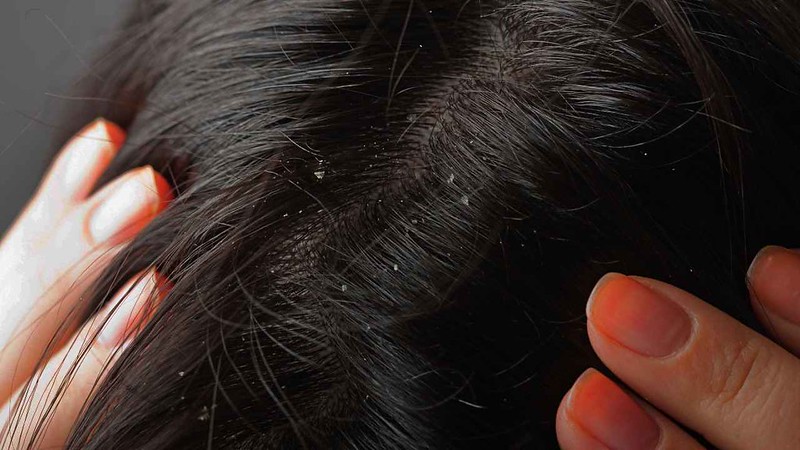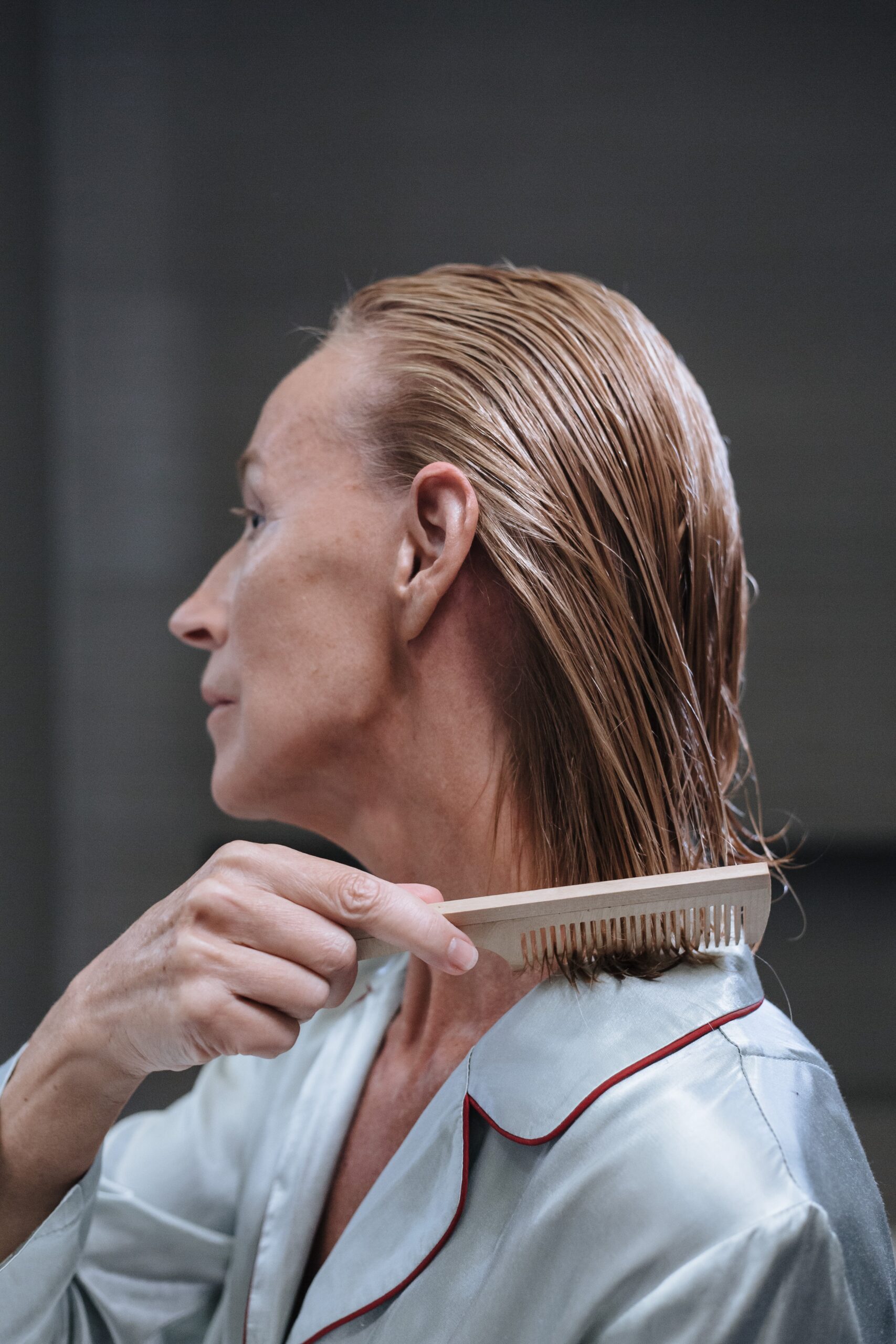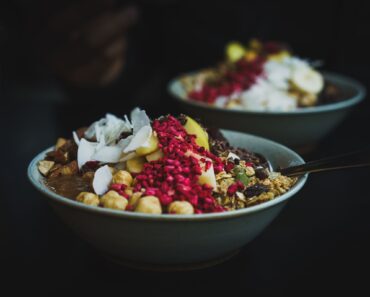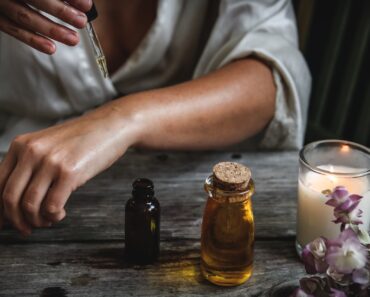Dandruff
Dandruff consists of dead scalp skin cells that appear as white flakes or scales on the shoulders and can make the skin look irritated and dry. This condition often results from factors such as high temperatures, which can increase dryness and peeling of the skin. Dandruff is not a contagious disease; it typically arises from various underlying causes and is usually manageable with over-the-counter treatments. While dandruff itself is not harmful, it can be embarrassing and, in severe cases, might contribute to hair loss. For most people, dandruff is treatable with common remedies, but persistent or severe cases may require consultation with a doctor.

Dandruff can result from a variety of factors, including:
- Dry Skin: Dry scalp skin can lead to flaking and dandruff, especially in cold or dry climates.
- Oily Skin: Excess oil on the scalp can create an environment that promotes the growth of yeast, which can lead to dandruff.
- Seborrheic Dermatitis: This condition causes red, greasy skin covered with flaky white or yellow scales. It often affects areas rich in oil glands, including the scalp.
- Malassezia: A type of yeast that naturally lives on the scalp can grow excessively and cause irritation and flaking.
- Psoriasis: A skin condition that speeds up the production of skin cells, leading to thick, scaly patches on the scalp and other parts of the body.
- Eczema: This condition can cause inflammation and flaking of the skin, including the scalp.
- Sensitivity to Hair Products: Certain shampoos, conditioners, or hair styling products can cause allergic reactions or irritate the scalp, leading to dandruff.
- Poor Hygiene: Infrequent shampooing can lead to the buildup of oils and skin cells, which can contribute to dandruff.
- Dietary Factors: A lack of certain nutrients, such as zinc, B vitamins, or omega-3 fatty acids, can affect scalp health and contribute to dandruff.
- Stress: High stress levels can exacerbate dandruff or other skin conditions.
- Hormonal Changes: Changes in hormones, particularly during puberty or menopause, can impact scalp health and contribute to dandruff.
Treating dandruff effectively often requires a multi-faceted approach. Here are several common and effective treatments:
1. Over-the-Counter Shampoos
- Anti-Fungal Shampoos: Shampoos containing ketoconazole, selenium sulfide, or zinc pyrithione can help reduce the yeast (Malassezia) that often contributes to dandruff.
- Tar-Based Shampoos: Shampoos with coal tar can slow down the production of skin cells and help with dandruff.
- Salicylic Acid Shampoos: These help remove flakes but may need to be followed with a conditioner to prevent dryness.
- Selenium Sulfide Shampoos: These reduce the yeast that causes dandruff and can also help with seborrheic dermatitis.
2. Prescription Shampoos and Medications
- Stronger Anti-Fungal Agents: For persistent dandruff, a doctor may prescribe stronger anti-fungal shampoos or topical treatments.
- Topical Corticosteroids: These can help reduce inflammation and itching, particularly in cases of seborrheic dermatitis or psoriasis.
3. Home Remedies
- Coconut Oil: Known for its moisturizing properties, coconut oil can play a huge role in reducing dryness and flakiness.
- Tea Tree Oil: Its anti-fungal and anti-inflammatory properties can help treat dandruff. Dilute it with a carrier oil before applying it to the scalp.
- Apple Cider Vinegar: It can help balance scalp pH and reduce fungal growth. Mix it with water and apply it to the scalp before rinsing.
- Aloe Vera: Known for its soothing properties, aloe vera can help reduce itching and flaking.
4. Lifestyle and Dietary Adjustments
- Regular Shampooing: Wash your hair regularly to remove excess oils and flakes.
- Avoiding Irritants: Use gentle, fragrance-free shampoos and avoid harsh hair products that may irritate the scalp.
- Balanced Diet: Ensure adequate intake of nutrients, including zinc, B vitamins, and omega-3 fatty acids, which support scalp health.
- Managing Stress: Reducing stress through relaxation techniques or exercise can help manage dandruff.
5. Professional Treatments
- Scalp Treatments: A dermatologist may offer specialized scalp treatments or suggest other interventions based on the severity and underlying cause of dandruff.
- Hair Spa Treatments: Some professional treatments focus on deep cleaning and moisturizing the scalp.
6. Consistent Care
- Consistency is Key: Regular use of appropriate treatments and maintaining good scalp hygiene can help keep dandruff under control.
- Monitor and Adjust: If a particular treatment doesn’t work, consider trying different options or consult a healthcare professional for advice.
If over-the-counter treatments and home remedies are ineffective or if dandruff is severe, persistent, or accompanied by other symptoms, it is advisable to consult a dermatologist for further evaluation and treatment.








